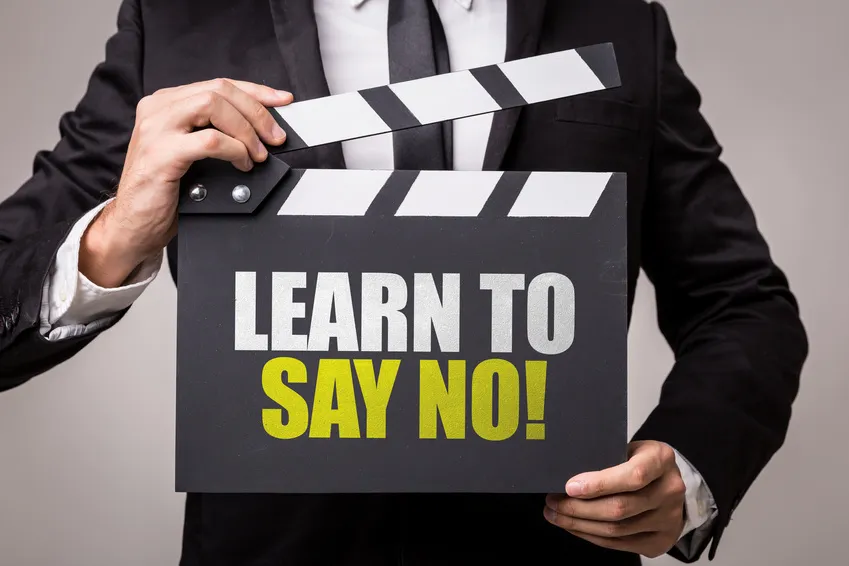Learning to say no can be a difficult skill to master, especially for people who tend to be empathetic and want to help others. Many of us feel a sense of guilt or obligation when someone asks us to do something, even if it means sacrificing our own time, energy, or resources. But the ability to say no is an important part of maintaining healthy boundaries and taking care of ourselves.
Saying no is not about being selfish or uncaring. In fact, it’s the opposite. By setting boundaries and protecting our own well-being, we are able to show up for others in a more meaningful and effective way. We are better able to give our time, energy, and resources to the things and people that truly matter to us.
So why is it so hard to say no? Often, it’s because we fear the consequences of disappointing others or facing their anger or resentment. We may worry that saying no will damage our relationships or hurt someone’s feelings. But the truth is, people respect and value those who are able to assert themselves and set boundaries. It shows that we have self-respect and are willing to stand up for ourselves.
Additionally, saying no can help prevent us from overcommitting and becoming overwhelmed. When we say yes to everything, we spread ourselves too thin and are unable to give our best effort to the things that are truly important to us. This can lead to burnout, stress, and resentment. By saying no to the things that don’t align with our values and priorities, we can focus our energy on the things that matter most.
So how can we learn to say no without feeling guilty? Here are a few tips:
Practice self-awareness. Take some time to reflect on your values and priorities. What is most important to you in your life? What do you want to spend your time and energy on? By being clear about what matters to us, we can more easily say no to the things that don’t align with our values.
Communicate clearly and directly. When someone asks us to do something, it’s important to be honest and direct. Let the person know that you appreciate the request, but that you are unable to fulfill it at this time. Be clear and specific about why you are saying no, and avoid making excuses or apologizing unnecessarily.
Offer alternative solutions. If you are unable to do something, but you still want to help, consider offering an alternative solution. For example, if someone asks you to volunteer for an event, but you already have plans, you could suggest finding another volunteer or offering to help in a different way.
Take care of yourself. Saying no can be difficult, especially if we are used to putting others’ needs before our own. But it’s important to remember that taking care of ourselves is not selfish. It’s essential for our physical, emotional, and mental well-being. Make sure to prioritize self-care and do things that nourish and support you.
In conclusion, being able to say no without feeling guilty is an important skill for maintaining healthy boundaries and taking care of ourselves. By practicing self-awareness, communicating clearly and directly, offering alternative solutions, and prioritizing self-care, we can learn to say no without feeling guilty and protect our own well-being.
